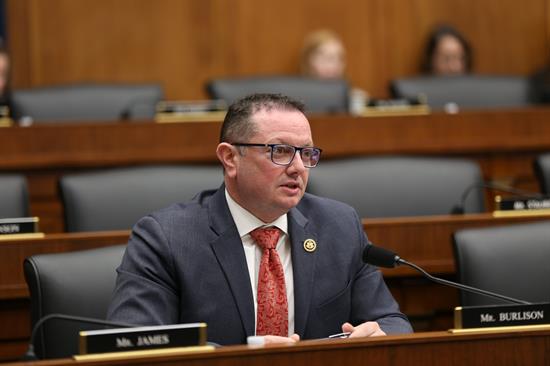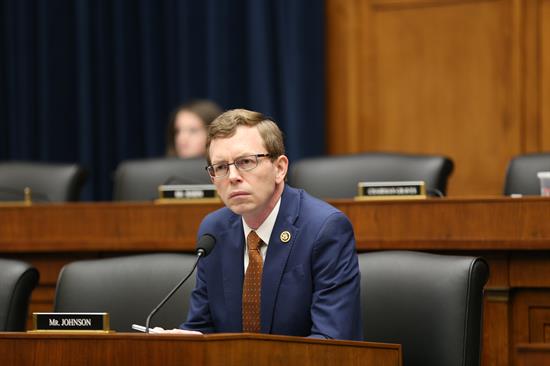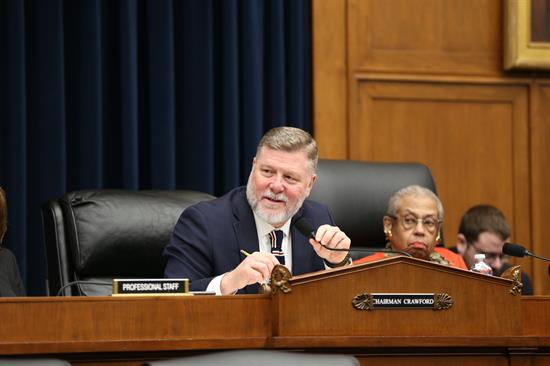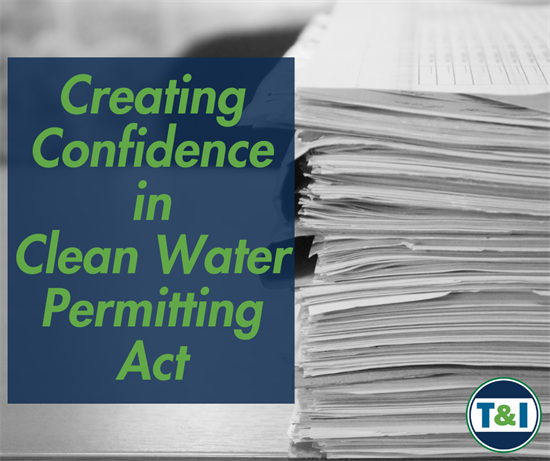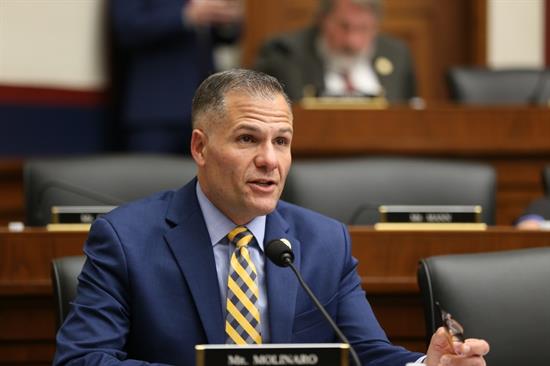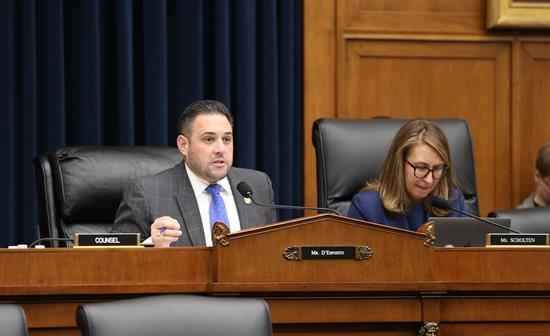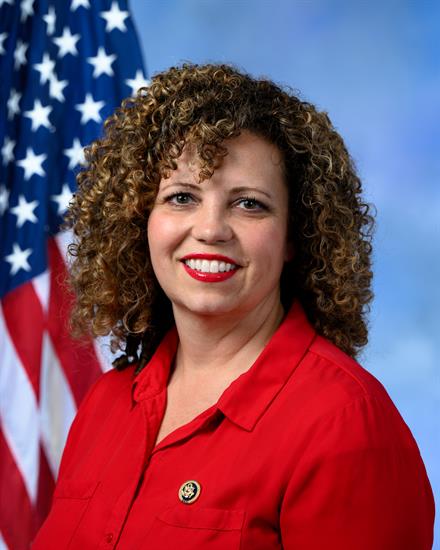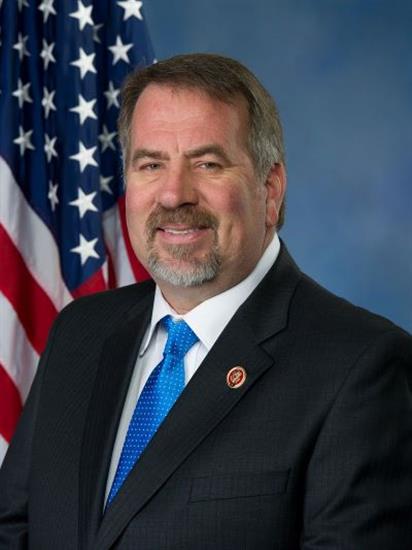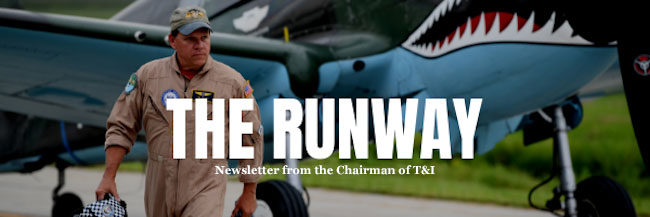
| THE RUNWAY: JANUARY/FEBRUARY RECAP |
| In this Issue: | |||||
|
| COMMITTEE HEARINGS | |||
| The State of Transportation To help kick off the second session of the 118th Congress, the Committee on Transportation and Infrastructure had a full committee hearing to discuss the current state of transportation infrastructure in the United States. A focus of the hearing was the ongoing supply chain challenges, specifically addressing the vulnerabilities exposed by the pandemic and dealing with the supply chain issues caused by today’s global conflicts. Additional information about this full committee hearing is available here.
WRDA Members’ Day In December of last year, the Subcommittee on Water Resources and Environment began holding hearings in preparation for the next Water Resources Development Act (WRDA). Since 2014, Congress has passed a bipartisan WRDA every two years to authorize U.S. Army Corps of Engineers Civil Works projects to improve the nation’s ports and harbors, the inland waterway navigation network, flood and storm protection, and other water resources infrastructure. On January 11th, the Subcommittee held its final hearing on WRDA 2024, a Members’ Day hearing where Members of the House of Representatives had the opportunity to testify before the Subcommittee on their WRDA priorities. More than 30 House Members testified before the Subcommittee on their policy recommendations for consideration in this year’s bill. More information about the Water Resources Development Act of 2024 is available here. Additional information about the hearing entitled “Proposals for a Water Resources Development Act of 2024: Members’ Day Hearing” is available here. In 2022, there were over 2,000 accidents at railroad grade crossings. In his opening statement Subcommittee Chairman Troy Nehls (R-TX) said that these “accidents and fatalities are entirely preventable.” At the hearing, Members asked the witnesses about the Railroad Crossing Elimination Grant Program included in the Infrastructure Investment and Jobs Act (IIJA), which is meant to help states and communities with grade crossing elimination and safety, and how such existing programs can be improved to ensure safety at railroad grade crossings. More information about the hearing is available here.
Over the last several months, the Houthis, an Iranian-backed separatist group based in Yemen, have sought to disrupt global commerce by increasing attacks against military and civilian vessels transiting the Red Sea. The Subcommittee on Coast Guard and Maritime Transportation held a hearing entitled “Menace on the Red Sea: Securing Shipping Against Threats in the Red Sea,” to examine the threats and emerging challenges to maritime commerce in and around the Red Sea. In his opening remarks, Subcommittee Chairman Daniel Webster (R-FL) explained the importance of securing this valuable shipping corridor saying, “we saw firsthand during the pandemic what a significant supply chain crisis can do to the global economy, and we must not let it happen again.” Additional information about the hearing is available here.
Subcommittee Chairman Rick Crawford (R-AR) said in his opening statement, “Buy America policy supports and strengthens our domestic manufacturing economy, which is crucial for both our national prosperity and security.” More information about the hearing is available here. |
|||
| COMMITTEE MARKUP | |||
On January 31st, the Transportation and Infrastructure Committee voted to approve a slate of measures to reform and restore permitting processes under the Clean Water Act, ensure rail transportation access for people with disabilities, and improve Federal Emergency Management Agency (FEMA) consideration of wildfire mitigation projects.
Additionally, the Committee approved H.R. 6248, the Think Differently Transportation Act, introduced by Rep. Marc Molinaro (R-NY). Rep. Molinaro’s bill addresses Amtrak’s ongoing non-compliance with the Americans with Disabilities Act of 1990 (ADA) and improves rail transportation access for people with disabilities.
More information about the January 31st markup is available here. |
|||
| THE STATE OF AMERICAN AVIATION & THE FAA | |||
| On January 6th, the Subcommittee on Aviation held a hearing in which members heard from Michael Whitaker, the Administrator of the Federal Aviation Administration (FAA). The hearing focused on the challenges facing the FAA and the aerospace industry, the ongoing work of the agency, and the need for a long-term comprehensive FAA reauthorization bill. This was the Administrator’s first appearance before the Committee since being confirmed by the U.S. Senate in October.
During the hearing, Aviation Subcommittee Chairman Garrett Graves emphasized the urgency of getting a comprehensive FAA reauthorization bill signed into law, especially considering rising challenges, the FAA’s organizational deficiencies, and the critical need to ensure the U.S. remains the gold standard in aviation safety. In his opening statement, Rep. Graves said, “Now more than ever, American aviation and FAA needs bold direction from Congress. We cannot afford business as usual or half measures.” In July 2023, the House of Representatives passed the T&I Committee’s bipartisan, five-year FAA bill, the Securing Growth and Robust Leadership in American Aviation Act (H.R. 3935). And on February 8th, two days after the FAA Administrator appeared before the House Aviation Subcommittee for this hearing, the Senate Committee on Commerce, Science, and Transportation approved their bill to reauthorize the FAA. Discussions on the differences between the two bills are underway.
Additional information about this Subcommittee hearing is available here. |
|||
| MEMBERS SPOTLIGHT | |||
|
Rep. Celeste Maloy is a first-term Congresswoman representing Utah’s 2nd district. She joined the Committee on Transportation and Infrastructure in early December, shortly after being sworn in to the House of Representatives. Upon joining T&I, Rep. Maloy said, “I’m excited to represent Utah in this committee as we have some of the fastest growing areas in the nation, which means we need to be paying attention to transportation and infrastructure.” She is the second Utahn to join T&I this Congress, and she expressed eagerness to work alongside her colleague, Rep. Burgess Owens, to improve their state’s infrastructure.
She also serves on the House Committee on Small Business, the Bipartisan Wildfire Caucus, and is the Vice Chair of the Colorado River Caucus.
In addition to serving on the Transportation and Infrastructure Committee, Rep. LaMalfa is also a member of the House Committee on Natural Resources and the House Committee on Agriculture. |
|||
| IN THE NEWS | |||
| Reuters: US lawmakers ask if FAA found persistent Boeing quality control lapses
Transport Topics: Congress members introduce resolution to halt FHWA’s greenhouse gas performance measures Progressive Railroading: House panel hearing: Supply chain reps describe economic impact of Houthi attacks on commercial shipping Rep. Mike Collins and Sen. Marco Rubio for The Washington Times: Pro-Hamas protests blocking federal highways are not peaceful assembly UPI: Industry leaders address shortfalls of Build America, Buy America provisions Rep. Scott Perry on Fox Business: “That’s not acceptable to the American flying public.” |
|||
|
